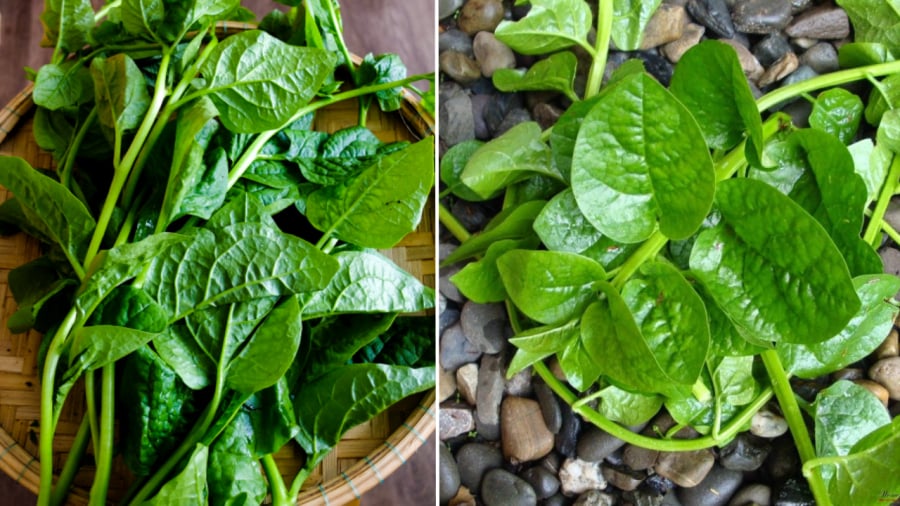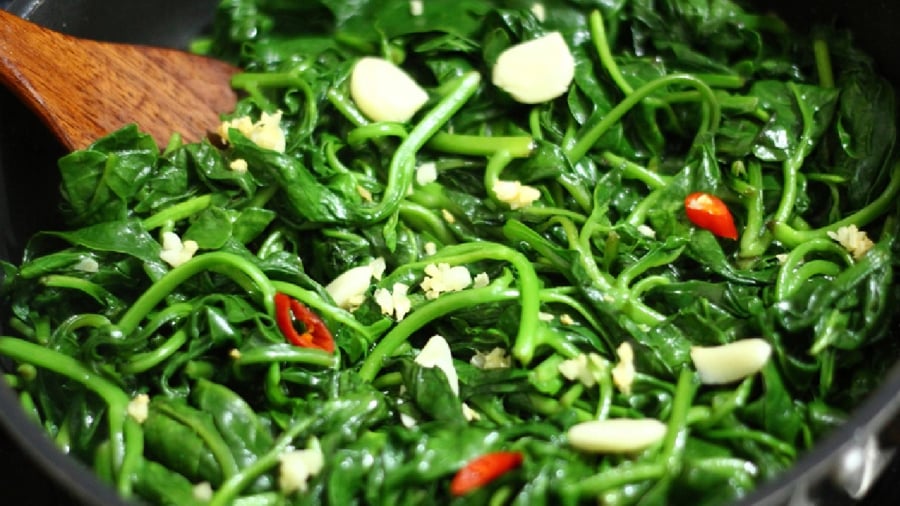The vegetable we are referring to here is water spinach, a common sight in Vietnamese family meals. Water spinach is highly valued for its nutritional content. Modern scientific research indicates that water spinach is rich in carbohydrates, polysaccharides, carotenoids, phenol, flavonoids, and amino acids such as glutamine, glutamic acid, aspartic acid, alanine, asparagine, and proline. Additionally, it contains high levels of vitamins A, B3, B9, C, and E, along with essential minerals like potassium, sodium, phosphorus, copper, iron, zinc, magnesium, and selenium.
Notably, the selenium content in water spinach is 30 times higher than in onions. This substance boosts immunity and aids in blood enrichment.
Water spinach is also known as the longevity vegetable for its ability to prevent and cure diseases. Here are some of the health benefits of water spinach that you may not be aware of.
Some Benefits of Water Spinach
- Prevents Osteoporosis
When it comes to calcium-rich foods, many people only think of dairy products. However, green vegetables also contain abundant calcium, and water spinach is one such example. In fact, this vegetable has even higher calcium content than milk. One hundred grams of water spinach provides 167 mg of calcium, while the same amount of milk only offers 125 mg.
Water spinach is beneficial in preventing and supporting the treatment of osteoporosis in the elderly, and it also aids in the growth and development of children, adolescents, and teenagers.
Moreover, water spinach is rich in iron, which is essential for blood enrichment and is closely linked to the development of the skeletal, immune, and nervous systems in the body.

- Reduces Blood Sugar Levels
Water spinach is beneficial in lowering blood sugar levels and is particularly advantageous for diabetic patients. Research indicates that the abundant fiber content in water spinach slows down the absorption of sugar from the blood, thereby maintaining stable blood sugar levels and preventing sudden spikes.
The vitamin C in water spinach optimizes the function of the pancreas, benefiting insulin production in the body. Additionally, the vitamin K in this vegetable stimulates the activity of proteins associated with blood sugar control.
The mucilage in water spinach also helps slow down the absorption of sugar into the blood after meals.
- Blood Enrichment
Water spinach is an excellent source of iron, making it beneficial for individuals suffering from iron-deficiency anemia. It can be combined with other foods to nourish the body and prevent anemia.
- Improves Digestion
Water spinach contains mucilage, which is beneficial for the digestive system as it stimulates intestinal peristalsis. Including water spinach in your daily meals can improve digestion and prevent constipation.

Who Should Avoid Eating Water Spinach
- People with Diarrhea
While water spinach improves digestion and relieves constipation, it is not suitable for individuals suffering from diarrhea. Consuming water spinach during diarrhea can worsen the condition.
- People with Stomach Ache
Individuals experiencing stomach aches should refrain from consuming large quantities of water spinach as its high fiber content may cause discomfort in the stomach.
- People with Kidney Stones
Water spinach contains purines, which, when consumed in excess, can lead to the formation of kidney stones. Therefore, individuals prone to kidney stones should limit their intake of water spinach.






































